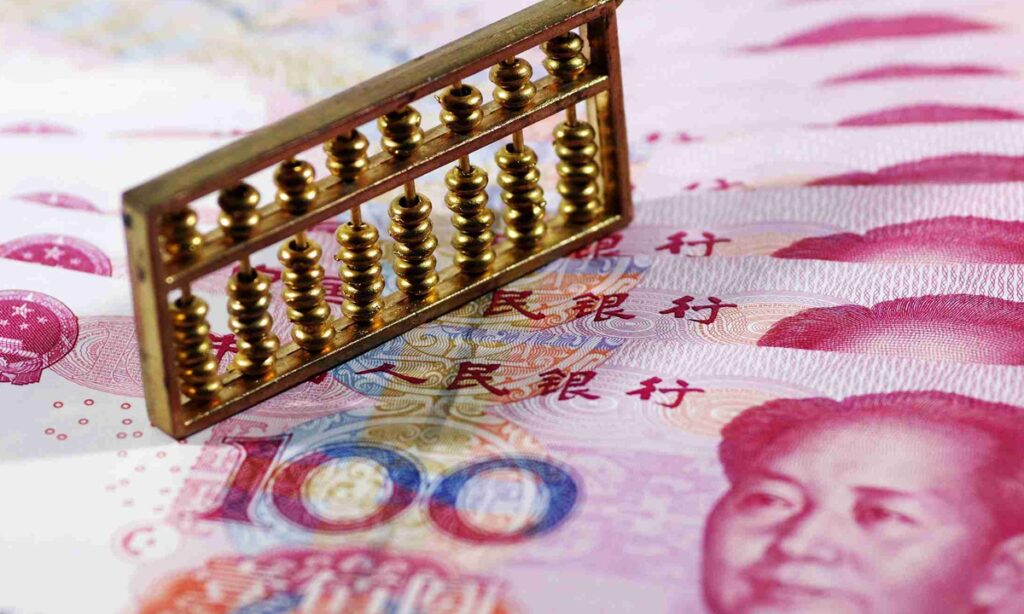Yuan expected to gain ground against the dollar at year-end: experts
China on Thursday raised a key parameter in its macro-prudential management to allow domestic firms to take on more foreign debt. Analysts said it’s a renewed effort to stabilize the yuan, which in turn will shore up confidence and support the real economy by coordinating domestic and international resources.
The macro-prudence parameter, a multiplier that sets the ceiling on an institution’s outstanding cross-border financing, was set at 1.5 as of Thursday, up from 1.25 previously, according to a joint statement by the People’s Bank of China, the central bank, and the State Administration of Foreign Exchange.
The move is intended to help domestic enterprises and financial institutions raise funds through multiple channels and optimize their balance sheets, the statement said.
The decision will expand channels for domestic enterprises to raise funds overseas and help increase the liquidity of the US dollar in the Chinese mainland market, and accordingly ease the depreciation pressure of the yuan, Zhao Qingming, a Beijing-based veteran financial expert, told the Global Times on Thursday.
The adjustment will help ensure a stable foreign exchange market and prevent extreme yuan volatility, Zhao said.
Following the central bank’s statement, the exchange rate of the onshore yuan reached 7.1755 at 6 pm on Thursday, strengthening around 400 basis points (bps) from the previous trading session. The offshore yuan reached 7.1784, up over 500 bps.
The move makes it easier and cheaper for Chinese companies to raise cross-border financing, and better coordinates the domestic and international markets to serve the development of the real economy, Dong Shaopeng, a senior research fellow at the Chongyang Institute for Financial Studies at the Renmin University of China, told the Global Times on Thursday.
In recent years, China has expanded the high-level opening up of its financial sector including securities, bonds and derivatives, which have maintained equilibrium in the country’s cross-border capital flows. This underscores that China’s continuous opening-up policy will continue to help the long-term stability of the yuan, Dong said.
The central bank still has many options in its toolkit to deal with the yuan’s fluctuations, including reserve requirements for foreign currency deposits, countercyclical reajustments and central bank bills, according to analysts.
Liu Guoqiang, deputy governor of the central bank, said on July 14 that the central bank has the confidence and capability to ensure a stable foreign exchange market.
He said that although the yuan has depreciated, it has not deviated from the fundamentals. He said that three factors support the yuan’s stability: China’s sound economic fundamentals, a moderate current account surplus and sufficient foreign exchange reserves.
“As the US Federal Reserve’s interest rate hikes near an end, the US Dollar Index will probably weaken and the yuan’s depreciation pressure will ease accordingly. The economy will continue to rebound in the second half, and the yuan’s exchange rate is expected to strengthen to above seven against the green back at the year-end,” Zhao said.
As part of the efforts to stabilize the yuan amid the headwinds pressuring domestic economic recovery, the central bank issued 25 billion yuan ($3.5 billion) worth of central bank bills in the Hong Kong market in May.
In addition, the Ministry of Finance said on Wednesday that it plans to issue yuan-denominated treasury bonds worth 12 billion yuan in Hong Kong in August, the second issue this year.
Analysts said the treasury bond issuance produces almost the same effect as central bank bills. Such issues absorb yuan funds in the offshore market and push up short-term interest rates, as well as the costs of shorting the yuan.
Increased coordination between China’s fiscal and monetary policies will help stabilize the yuan at an equilibrium level while driving up the momentum of the economic recovery, they said.
(Global Times)




